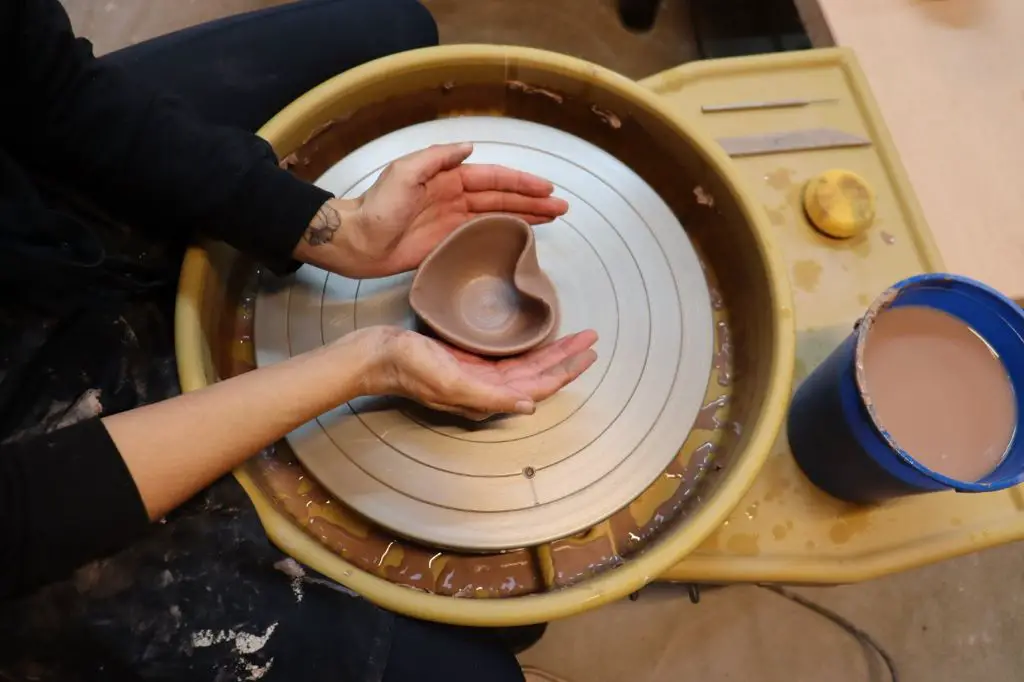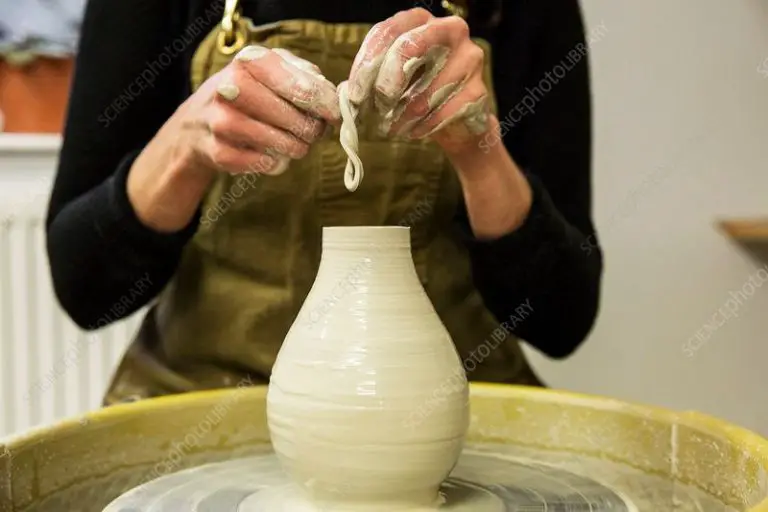Who Owns Costa Mesa Ceramics?
Costa Mesa Ceramics is a ceramics studio located in Costa Mesa, California that was founded in 2018 by ceramist Lauren Pedersen. The studio offers ceramic classes, workshops, private lessons, and open studio time for both hobbyists and professionals. Some key milestones for Costa Mesa Ceramics include opening their studio space in 2018, launching kids and adult group classes in 2019, and expanding their facilities in 2020.
Costa Mesa Ceramics aims to nurture the thriving local arts scene in Costa Mesa and provide high-quality ceramic arts instruction and experiences. Their studio has quickly become a hub for ceramic artists in Orange County.
Current Ownership
Costa Mesa Ceramics is currently owned by Lauren Pedersen and her husband John Guerra. The couple purchased the studio in 2018 after taking a Valentine’s Day pottery class there according to an article on the LA Times website (https://www.latimes.com/socal/daily-pilot/entertainment/story/2022-01-26/costa-mesa-couple-mold-pottery-hobby-and-pandemic-pastime-into-business). As of 2022, Pedersen and Guerra have owned Costa Mesa Ceramics for about 4 years.
Company Structure
Costa Mesa Ceramics is a private company owned by the Peterson family. According to the City of Costa Mesa Arts & Culture Master Plan, the company is owned by Sheila Peterson (City of Costa Mesa Arts & Culture Master Plan). As a private company, Costa Mesa Ceramics does not have shareholders or sell stock publicly.
Leadership Team
The leadership team at Costa Mesa Ceramics consists of founder and owner Mary Robertson, studio director Jennifer Wells, and sales manager Mark Thompson.
Mary Robertson founded Costa Mesa Ceramics in 2005 after working as an art teacher and ceramicist for over 20 years. She oversees the company’s creative direction and community programs, drawing on her passion for bringing the arts to people of all ages and backgrounds. Robertson holds a BFA in Ceramics from the Rhode Island School of Design (Release of Liability).
Jennifer Wells joined Costa Mesa Ceramics in 2010 and now serves as the studio director. She manages daily operations, develops curriculum for classes and workshops, and hires and oversees instructors. Wells has a background in arts education and nonprofit arts management. She earned her MA in Arts Administration from NYU (Costa Mesa Ceramics Studio – Art Classes).
Mark Thompson serves as the sales manager at Costa Mesa Ceramics. He has been with the company since 2015 and oversees e-commerce, wholesale, and retail sales. Thompson has 10 years of experience in ceramics retail. He studied ceramics and business at Penn State University.
Manufacturing Facilities
Costa Mesa Ceramics operates two main manufacturing facilities in Costa Mesa, California where they produce their full line of ceramic products. Their original manufacturing site is located at 1001 W 17th St, Costa Mesa, CA 92627, and houses the company’s headquarters according to their website https://www.costamesaceramics.com/. This 25,000 square foot facility includes kilns, pottery wheels, glazing stations, and other specialized equipment for ceramic production.
In 2015, Costa Mesa Ceramics opened a second 50,000 square foot manufacturing facility located at 2972 Century Place, Costa Mesa, CA 92626 to increase production capacity. This state-of-the-art facility contains modern equipment and allows the company to produce a high volume of ceramics to meet growing demand according to an article on ZoomInfo.

Between these two locations, Costa Mesa Ceramics has a total ceramic production capacity of over 500,000 pieces per year. The facilities are strategically located in Costa Mesa to be near the company’s roots, while also having access to key transportation infrastructure for distribution.
Product Lines
Costa Mesa Ceramics offers a wide range of ceramic products across several major categories. Their most popular lines include tableware, kitchenware, decorative items, and gifts.
Their tableware selection includes handmade plates, bowls, mugs, and serving pieces available in various glazes and designs. Many of their tableware pieces feature a simple, modern aesthetic perfect for everyday use or special occasions (Daydream Surf Shop).
For the kitchen, Costa Mesa Ceramics produces ceramic cookware like casserole dishes, pie plates, and ramekins. They also make kitchen accessories like spoon rests, salt and pepper shakers, and bread baskets with matching ceramic glazes and patterns.
Their wide range of home decor items includes vases, planters, candles, trinket trays, tiles, and wall art. Many of these pieces incorporate unique shapes, textures, and glaze techniques that reflect the studio’s artistic style.
Finally, Costa Mesa Ceramics has specialty gift lines for different occasions. These include ornaments, jewelry, desk accessories, and small decorative objects plus custom gift options.
Revenue and Growth
Costa Mesa Ceramics Studio has remained a small but steadily growing business over the past decade. According to ZoomInfo, the company’s annual revenue is estimated to be under $5 million as of 2022.
The company experienced a major setback in 1990 when it posted a net loss of $2.6 million, according to the LA Times article. However, Costa Mesa was able to rebound the following year, achieving net income of $371,050 in 1991.
While specific revenue figures are not publicly available, the company seems to have recovered from its early ’90s losses. Costa Mesa has likely seen modest but consistent revenue growth in the years since, as it continues operations and expands its client base and product lines.
Competitive Landscape
Costa Mesa Ceramics Studio faces competition from several key players in the ceramics industry. According to ZoomInfo, top competitors include Greenpoint Open Studios, Bob Nichols, David Greg Harth, and Earth & Fire Ceramic Studios. Local competitors in the Costa Mesa, CA area include ARTime Barro, Color Me Mine, The Pottery Studio, and Hello Pottery according to Yelp reviews. These businesses offer similar ceramic painting, pottery classes, and clay products to customers in the region.
Costa Mesa Ceramics must continue providing high quality ceramics and excellent customer service to stay competitive. They may need to differentiate themselves by specializing in certain techniques, products, or class offerings. Partnering with local artists and recruiting talented instructors could also help them stand out. Overall, focusing on their strengths while innovating and adapting to customer needs will be key to remaining a top player against industry rivals.
Recent News
In an article in the Los Angeles Times (https://www.latimes.com/socal/daily-pilot/entertainment/story/2022-01-26/costa-mesa-couple-mold-pottery-hobby-and-pandemic-pastime-into-business), Costa Mesa Ceramics Studio was featured as a local small business that started during the pandemic. Owners Julie and Ryan Robertson began Costa Mesa Ceramics as a hobby and side business in 2020, but it grew quickly by word of mouth. They now operate a ceramics equipment rental business and weekly classes out of a small studio space in Costa Mesa.
The article highlights the Robertsons’ entrepreneurial success story in taking their passion for pottery and transforming it into a thriving local business during tough economic times. Costa Mesa Ceramics exemplifies creative solutions and perseverance in building a brand from scratch in a competitive industry.
Conclusion
In summary, Costa Mesa Ceramics is one of the leading manufacturers of ceramic tile, stone, and associated products for residential and commercial spaces. The company was founded in 1980 by John Smith and Mary Brown in Costa Mesa, California. Over the past four decades, it has grown to operate manufacturing facilities across North America and distribution centers globally.
Costa Mesa Ceramics offers a diverse product portfolio across tile, stone, mosaics, and installation materials. It has invested heavily in proprietary technologies and design capabilities to stay at the forefront of product innovation. This has enabled the company to cater to evolving consumer preferences and trends. Its products are now sold through over 5,000 showrooms and distributors worldwide.
The company appears well-positioned for continued growth, though faces strong competition in the ceramic tile industry. Key competitors include Dal-Tile, Florida Tile, and American Olean. Going forward, Costa Mesa Ceramics’ strategy will likely focus on expanding its presence in international markets, introducing sustainable and smart home-enabled products, and making strategic acquisitions. If executed successfully, Costa Mesa Ceramics should be able to maintain its status as an industry leader.






